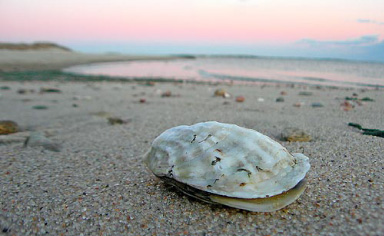|
||||
"Adaptation to the spilled oil may result in an increase in some types of vibrios," says Crystal. "We believe that vibrios will change in response to the stress of direct exposure to oil and to indirect effects of interactions with other species affected by oil." Crystal and her colleagues hypothesize that there are unidentified genes associated with pathogenicity that help pathogenic vibrios adapt to environmental changes. They are addressing the effect of oil on the relative abundance of pathogenic bacteria in a community by collecting samples of bacteria in water and oysters from several Louisiana locations and screening them for a newly discovered pathogenicity factor.
|
|
The RAPID grant team is building on a database already developed through the collection of samples for Crystal's Ecology of Infectious Diseases (EID) project. "We're comparing the response of microbes and oysters to water quality before and after the spill," says Crystal. In fact, Crystal believes that one of the strengths of their grant proposal was the existence of this background baseline data pre-oil spill.
One of Crystal's Masters students, Erica Simmons, is conducting research on whether there is an increase in an alternate pathegenetic factor post-oil spill. "There's all this sadness [because of the spill], but out of it comes this Masters project," says Crystal.



